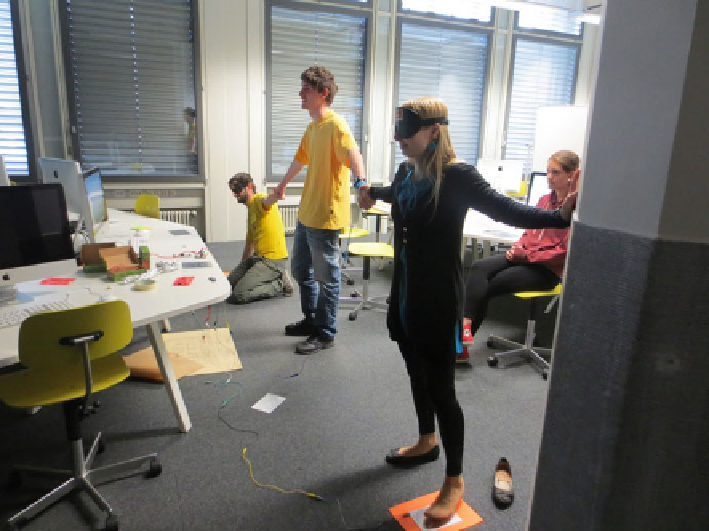Information Technology Reference
In-Depth Information
Fig. 13.1
Performative activities supporting an electronic circuit through body connections
aims of the project are as follows: fi rstly, to realize an artistic media education
approach including a scenario to support social and core skills through creative
project work in team-based arrangements. Secondly, the mentoring of such processes
with university students is a goal to aspire to. In the paper, we look at examples
developed in the GamesLab workshop. The projects presented are based on 3-day
workshop settings which were developed, realized and applied with education stu-
dents who collaborate with students of technological subjects (e.g. such as elec-
tronical engineering, computer science, architecture as well as machine engineering)
who attain so called key qualifi cation/transferable skills
1
in the framework of a
seminar at university level (Fig.
13.1
).
The qualitative research methodology is based on the continuous observations of
lessons by the mentors as well as on feedback rounds and semi-structured group
interviews with the participants. As a result, the workshop scenario as well as proj-
ects developed by the young people are introduced in the following. In conclusion,
the paper looks at the lessons learned through artistic game education as didactic
tool for unlocking creativity in vocational preparation.
The project aims to scrutinize artistic approaches to media design and mentoring
concepts and to enable students to accompany game development projects in cre-
ative contexts. It brings together game design and portfolio practice to refl ect and
1
The German term of Schlüsselqualifi kationen.

